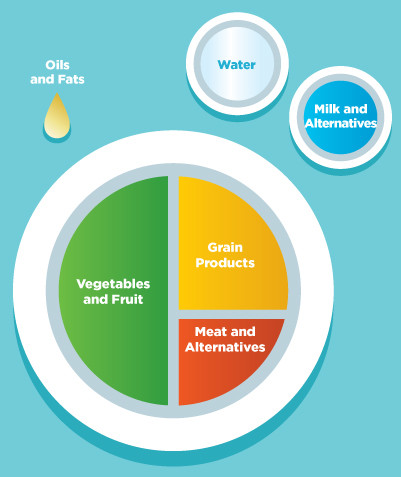
In an age where health and wellness are paramount, understanding the principles of healthy eating is essential. This article aims to provide a comprehensive guide to healthy eating, delving into topics such as:
- Nutrient density
- The benefits of organic foods
- Mastering portion control
- The importance of hydration
- Addressing eating disorders
- Navigating dietary restrictions
Backed by evidence-based information, this article aims to empower readers with the knowledge and freedom to make informed choices about their diet and overall well-being.
Understanding Nutrient Density
Understanding nutrient density is crucial for maintaining a balanced and nutritious diet. Nutrient density refers to the amount of essential nutrients, such as vitamins, minerals, and antioxidants, that are present in a given food relative to its calorie content. This concept is important because it allows individuals to optimize their nutrient intake while managing calorie consumption.
When it comes to nutrient absorption, foods that are nutrient-dense are more easily absorbed by the body compared to foods that are less nutrient-dense. This is because the body recognizes the importance of these essential nutrients and prioritizes their absorption. Conversely, consuming foods that are low in nutrient density can lead to nutrient deficiencies, as the body may not receive an adequate amount of essential nutrients despite consuming enough calories.
Benefits of Organic Foods
Optimizing nutrient intake and managing calorie consumption can be further enhanced by exploring the benefits of incorporating organic foods into a balanced and nutritious diet.
Organic foods are grown without the use of synthetic fertilizers, pesticides, and genetically modified organisms (GMOs), making them a healthier choice for both individuals and the environment.
Research has shown that organic foods may contain higher levels of certain nutrients, including vitamins, minerals, and antioxidants, compared to conventionally grown foods.

Additionally, organic farming practices have a lower environmental impact, as they promote soil health, biodiversity, and reduce water pollution.
By choosing organic, individuals can also reduce their exposure to potentially harmful pesticides commonly used in conventional agriculture.
While organic foods may be slightly more expensive, the health benefits and positive impact on the environment make them a worthwhile investment for those seeking a healthier lifestyle.
Mastering Portion Control
Incorporating proper portion control is essential for maintaining a balanced and nutritious diet, building upon the benefits of organic foods. Mindful eating and being aware of portion sizes can help individuals make healthier choices and prevent overeating. Here are five important tips to master portion control:
- Use smaller plates and bowls to visually trick your mind into thinking you have more food.
- Measure and weigh your food to ensure accurate portion sizes.
- Pay attention to hunger and fullness cues to avoid mindless snacking.
- Slow down and savor each bite, allowing yourself to fully enjoy the flavors and textures of your food.
- Plan and prepare meals in advance to avoid impulse eating and control portion sizes.
Importance of Hydration
Proper hydration is crucial for maintaining overall health and well-being, and it complements the practice of portion control discussed previously.
Staying hydrated is important not only for everyday functioning but also for optimizing exercise performance. When we exercise, our bodies lose water through sweat, which can lead to dehydration if not replenished. Dehydration can impair physical and cognitive performance, as well as increase the risk of heat-related illnesses.
It is recommended to drink water before, during, and after exercise to ensure adequate hydration. Water is the best choice for hydration, as it is calorie-free and easily accessible. It helps regulate body temperature, aids digestion, and supports nutrient absorption.

Remember to listen to your body's thirst cues and drink enough water throughout the day to maintain optimal hydration levels.
Addressing Eating Disorders
Addressing eating disorders is essential for promoting overall health and well-being. Eating disorders, such as anorexia nervosa, bulimia nervosa, and binge eating disorder, can have serious physical and psychological consequences. Here are five important considerations when addressing eating disorders:
- Body image: Encouraging individuals to develop a positive body image can help prevent the development of eating disorders. Promoting self-acceptance and body diversity can contribute to a healthier relationship with food and body.
- Emotional eating: Recognizing and addressing emotional eating patterns is crucial. Providing support and teaching healthy coping mechanisms for dealing with emotions can help individuals develop a healthier relationship with food.
- Education and awareness: Increasing awareness about eating disorders and their potential consequences is important for early detection and intervention. Educating individuals about the signs and symptoms of eating disorders can help facilitate timely intervention and treatment.
- Access to treatment: Ensuring that individuals have access to appropriate treatment options, such as therapy and medical support, is essential. Providing resources and reducing barriers to treatment can contribute to better outcomes for individuals with eating disorders.
- Support systems: Building a strong support system that includes family, friends, and healthcare professionals can provide the necessary support during recovery. Creating an environment of understanding, empathy, and non-judgment can help individuals on their journey towards healing.
Navigating Dietary Restrictions
When navigating dietary restrictions, it is important to understand the specific limitations and requirements of one's diet. Meal planning becomes essential in ensuring that individuals with dietary restrictions have access to nutritious and satisfying options.
The first step is to identify the specific ingredients that need to be avoided, such as gluten, dairy, or nuts. Once these restrictions are established, it is helpful to explore alternative ingredients that can be used in place of the restricted ones. For example, individuals with gluten restrictions can opt for gluten-free grains like quinoa or rice.
Additionally, there are numerous resources available, such as cookbooks and online platforms, that provide recipes and meal ideas tailored to specific dietary restrictions. By being proactive and informed, individuals can navigate their dietary restrictions with ease and enjoy a wide variety of delicious and nutritious meals.
Frequently Asked Questions
Can Nutrient Density Be Affected by Cooking Methods?
Yes, cooking methods can affect nutrient density. Heat can cause the breakdown of certain vitamins and minerals in foods. However, cooking can also enhance the availability of certain nutrients, making them easier for the body to absorb. The effects of heat on nutrient density can vary depending on the specific food and cooking method used. Additionally, the comparison of raw vs. cooked foods shows that while raw foods may retain more nutrients, cooking can also increase the bioavailability of certain nutrients.
Are There Any Potential Risks or Drawbacks to Consuming Organic Foods?
Consuming organic foods may have potential risks and drawbacks. Some studies suggest that organic foods may not have significant nutritional differences compared to conventional foods. However, concerns about pesticide exposure and the environmental impact of conventional farming practices exist.

How Can One Effectively Measure and Monitor Portion Sizes?
Measuring techniques and portion control strategies are essential for maintaining a healthy diet. By using tools like measuring cups, scales, and visual references, individuals can effectively monitor their portion sizes and ensure they are consuming appropriate amounts of food.
What Are the Best Ways to Stay Hydrated Apart From Drinking Water?
Staying hydrated is essential for overall health. In addition to drinking water, hydrating foods such as fruits and vegetables can help maintain hydration levels. Alternative beverages like herbal tea and coconut water can also contribute to hydration.
What Resources or Support Systems Are Available for Individuals Struggling With Eating Disorders?
Support groups and therapy options are available for individuals struggling with eating disorders. These resources provide a safe and supportive environment for individuals to share their experiences, gain insights, and receive professional guidance in their journey towards recovery.






